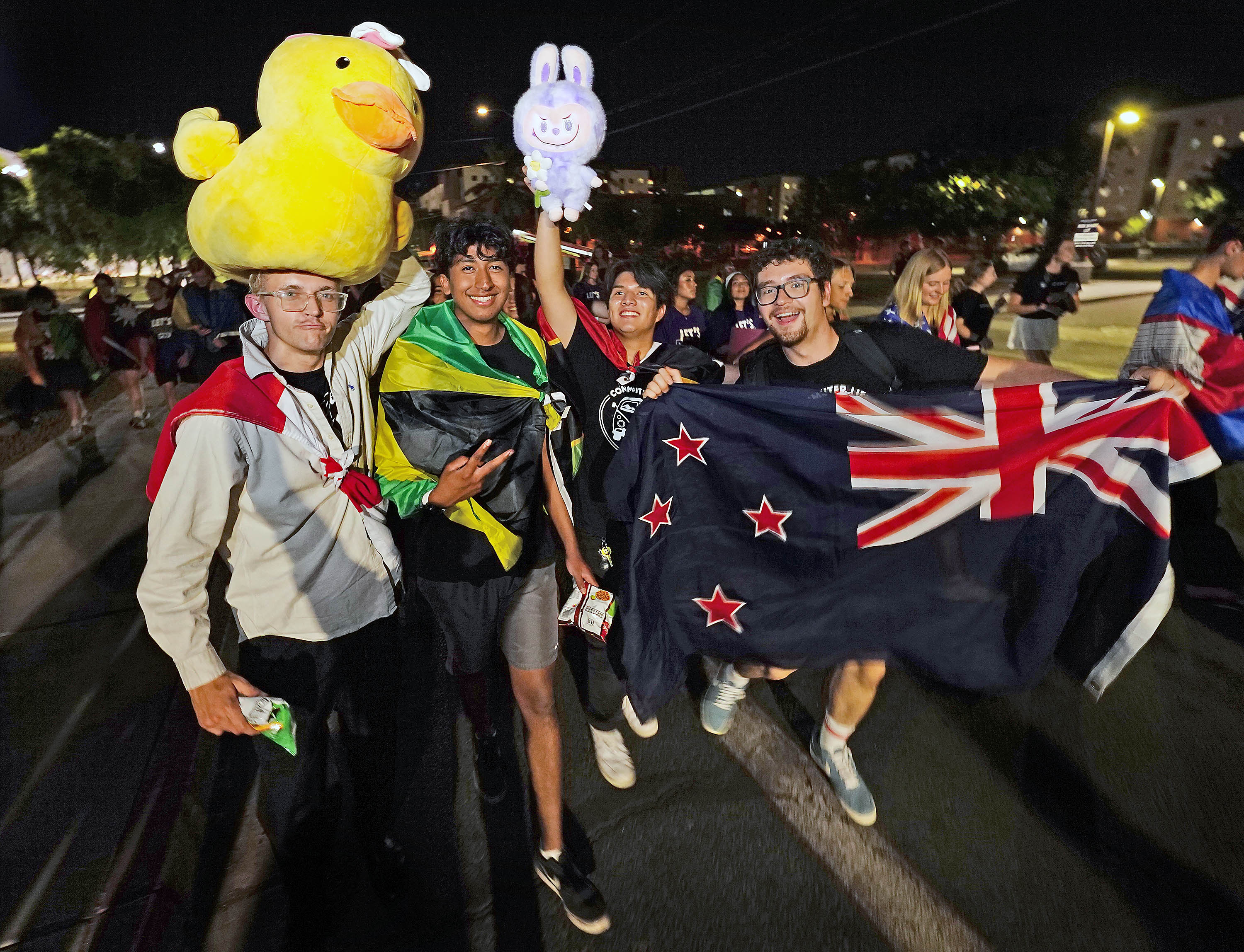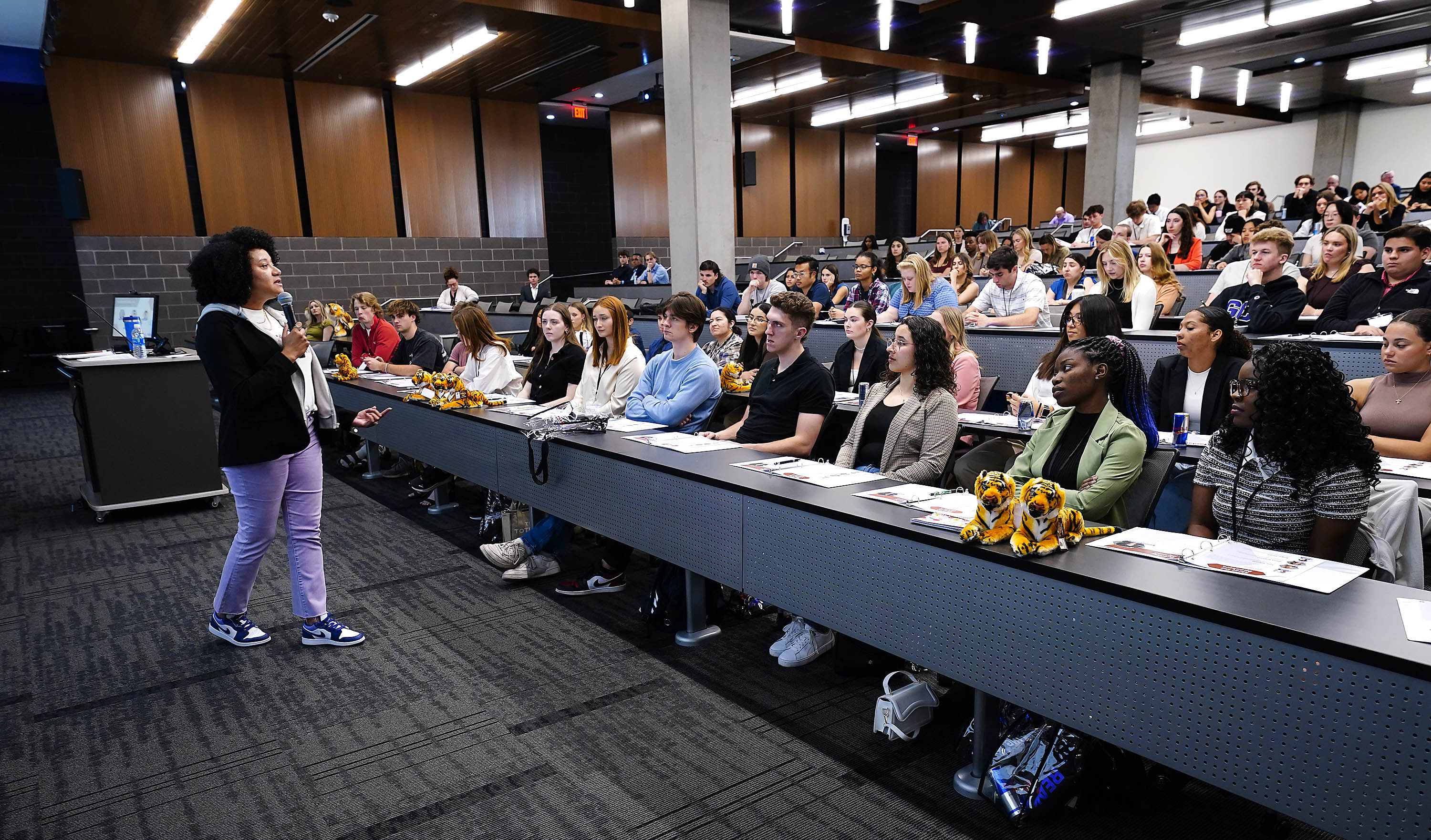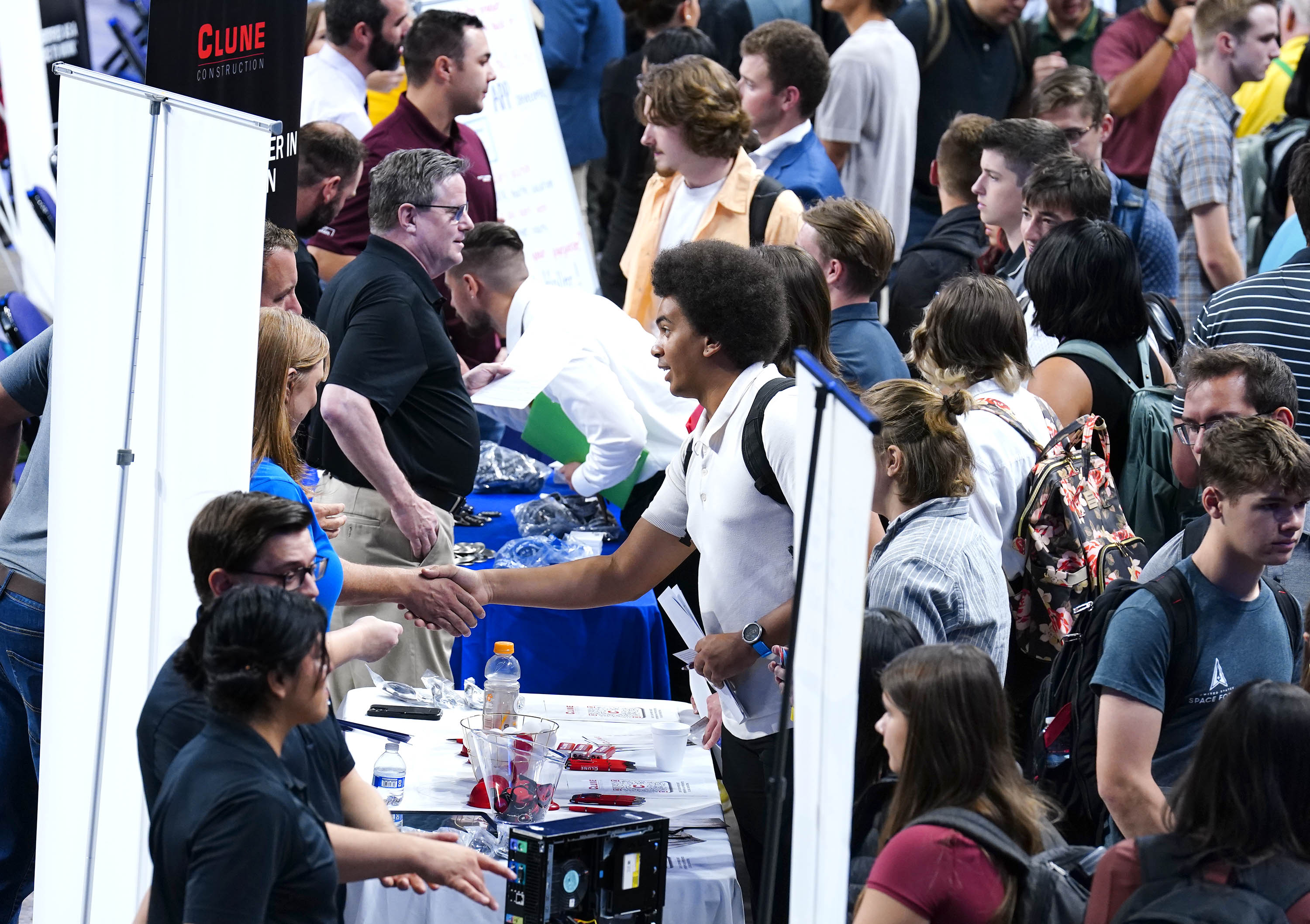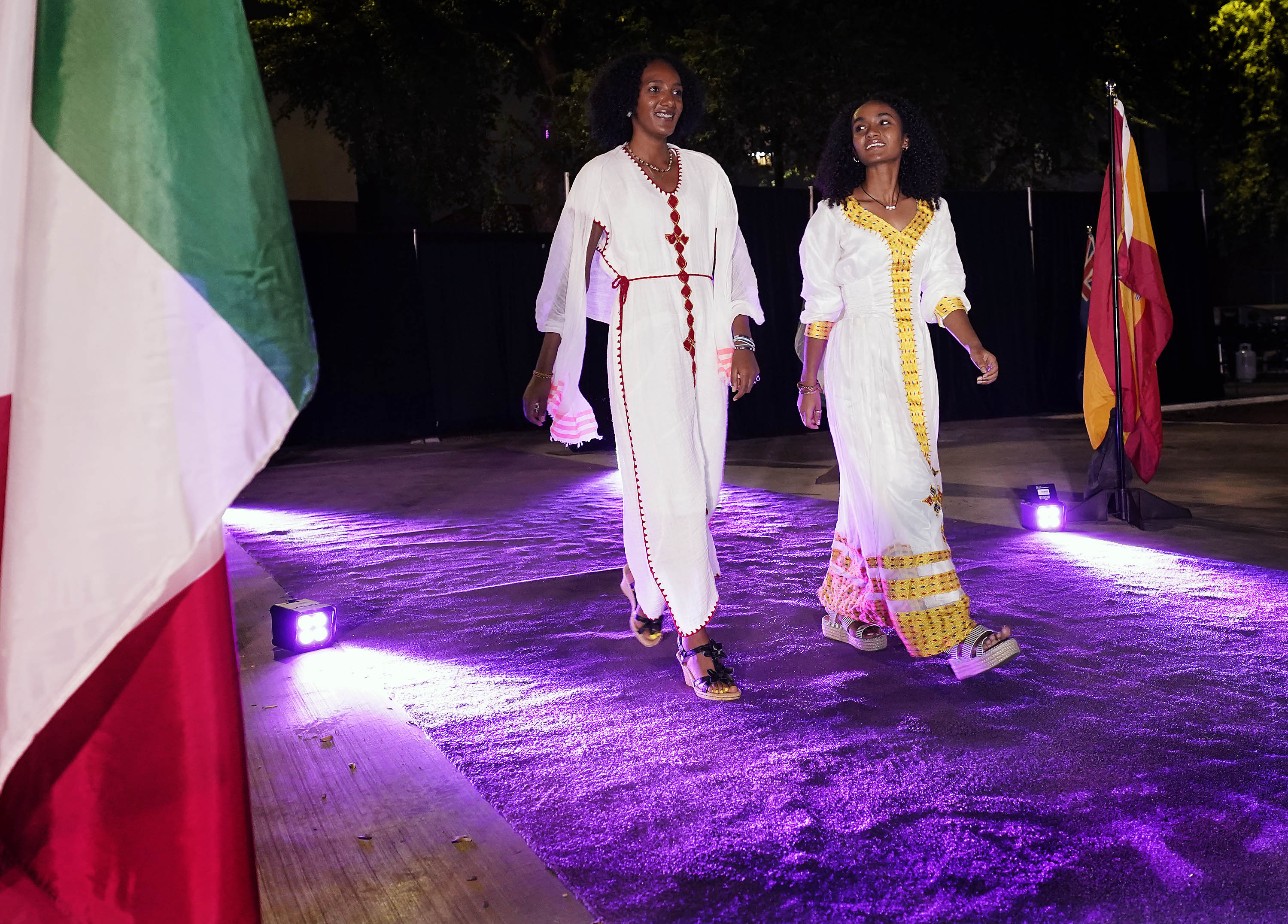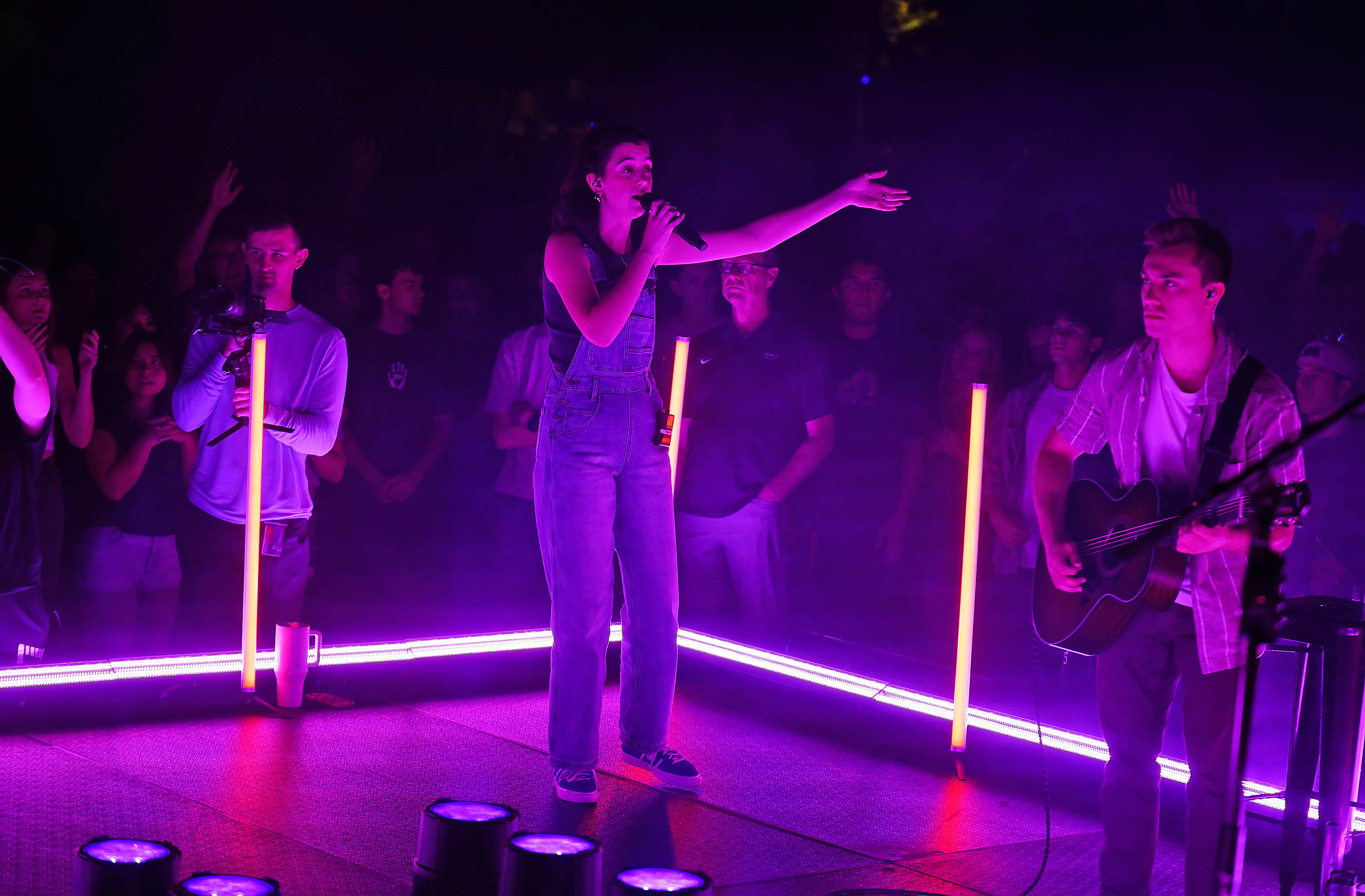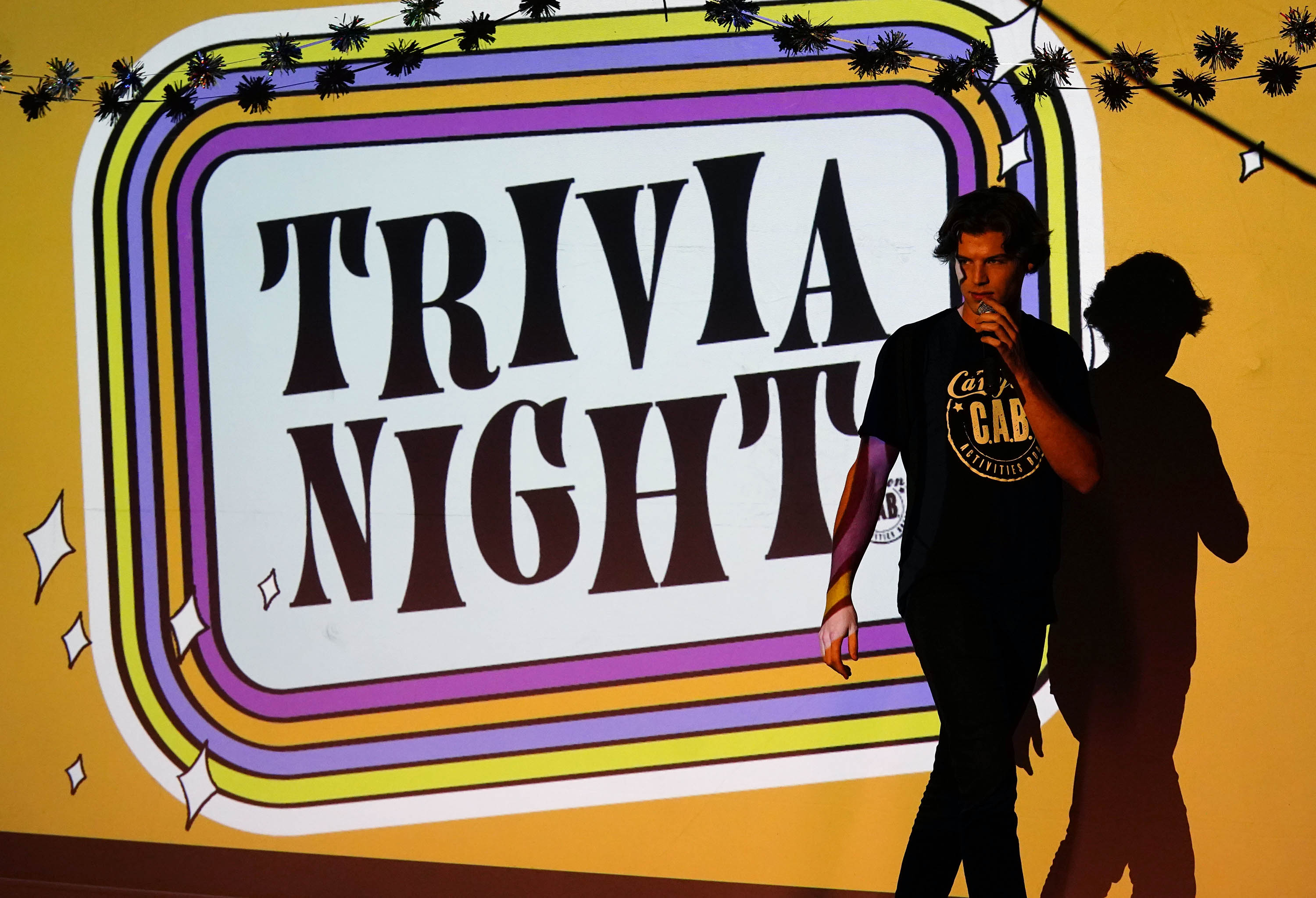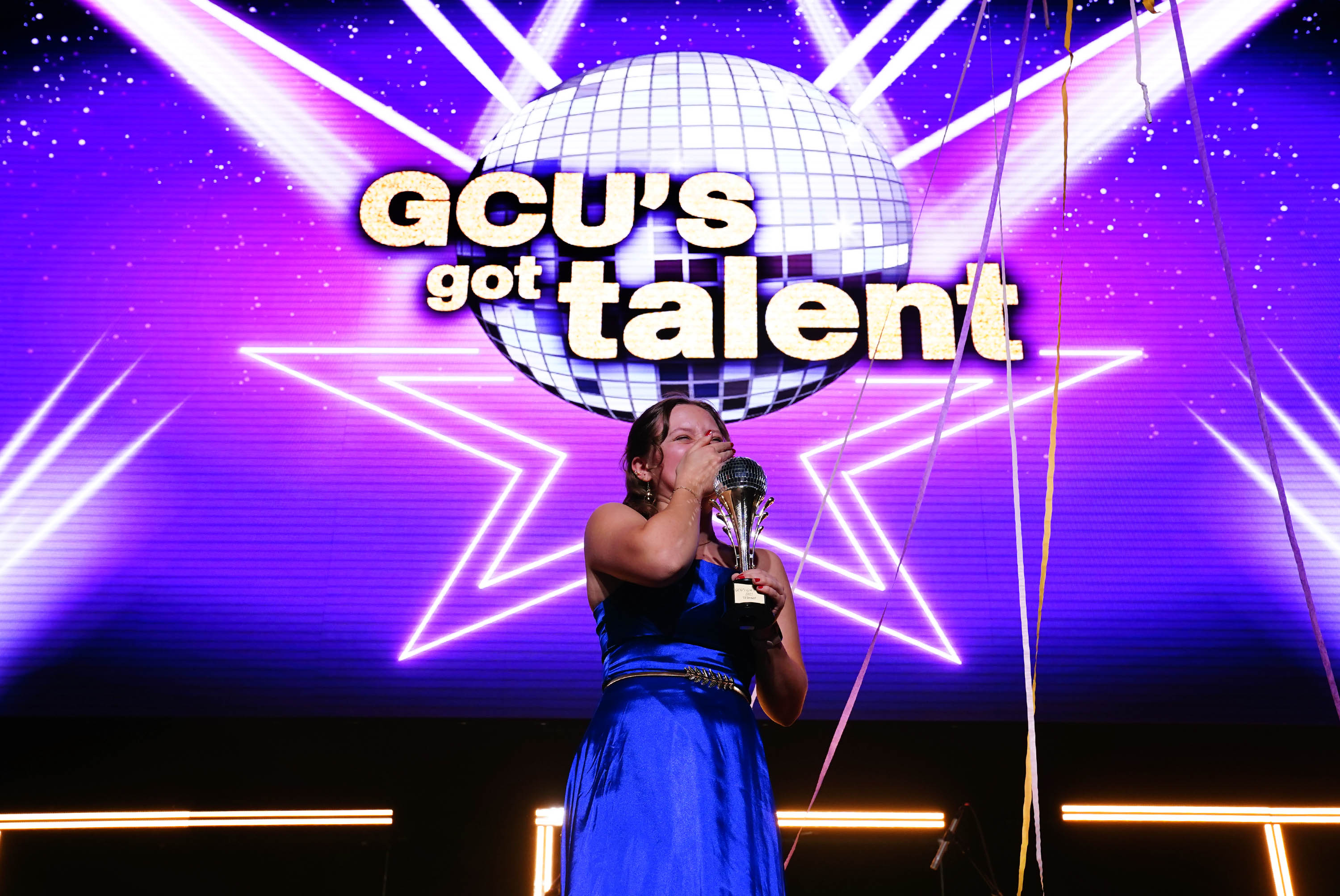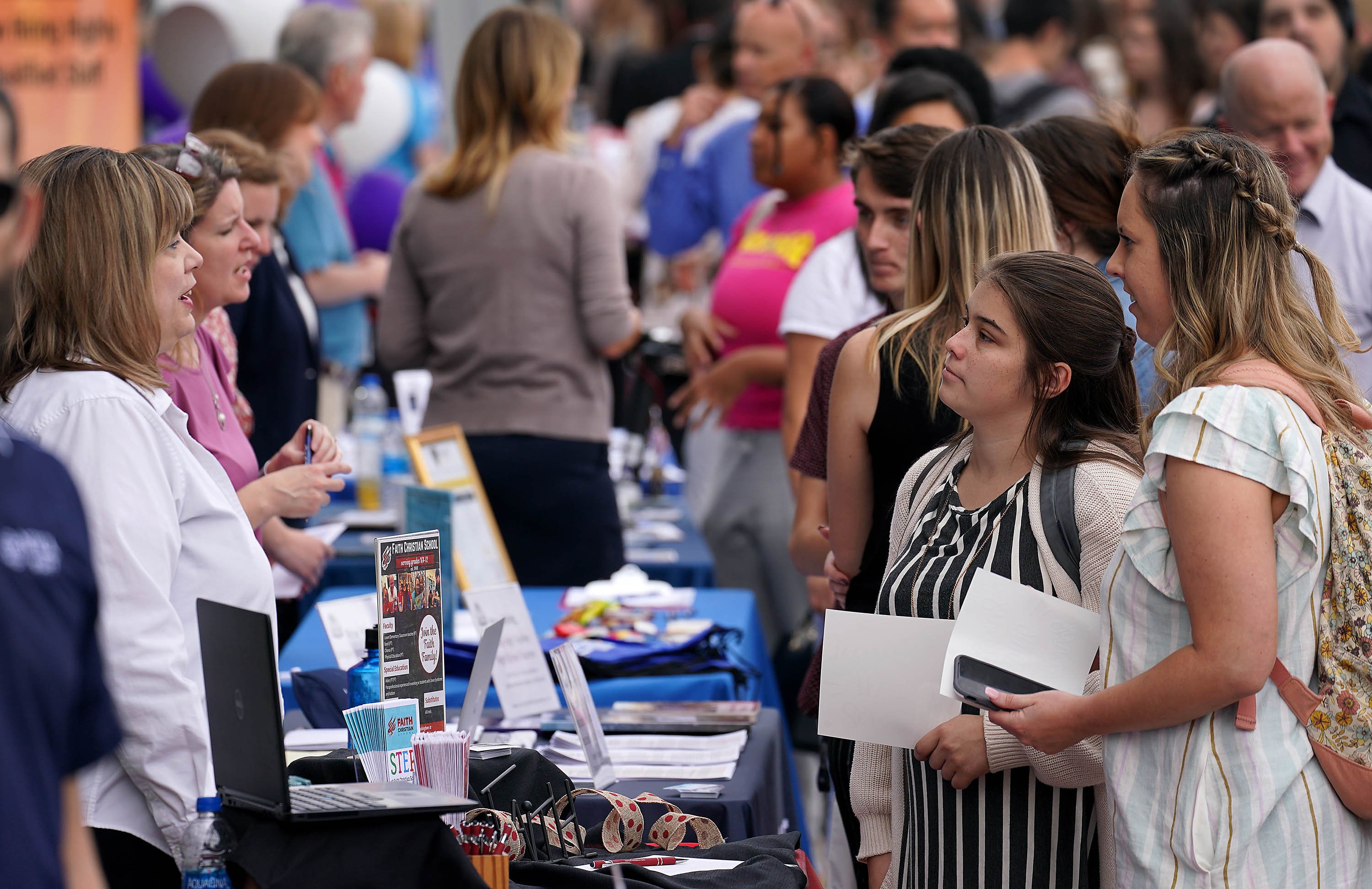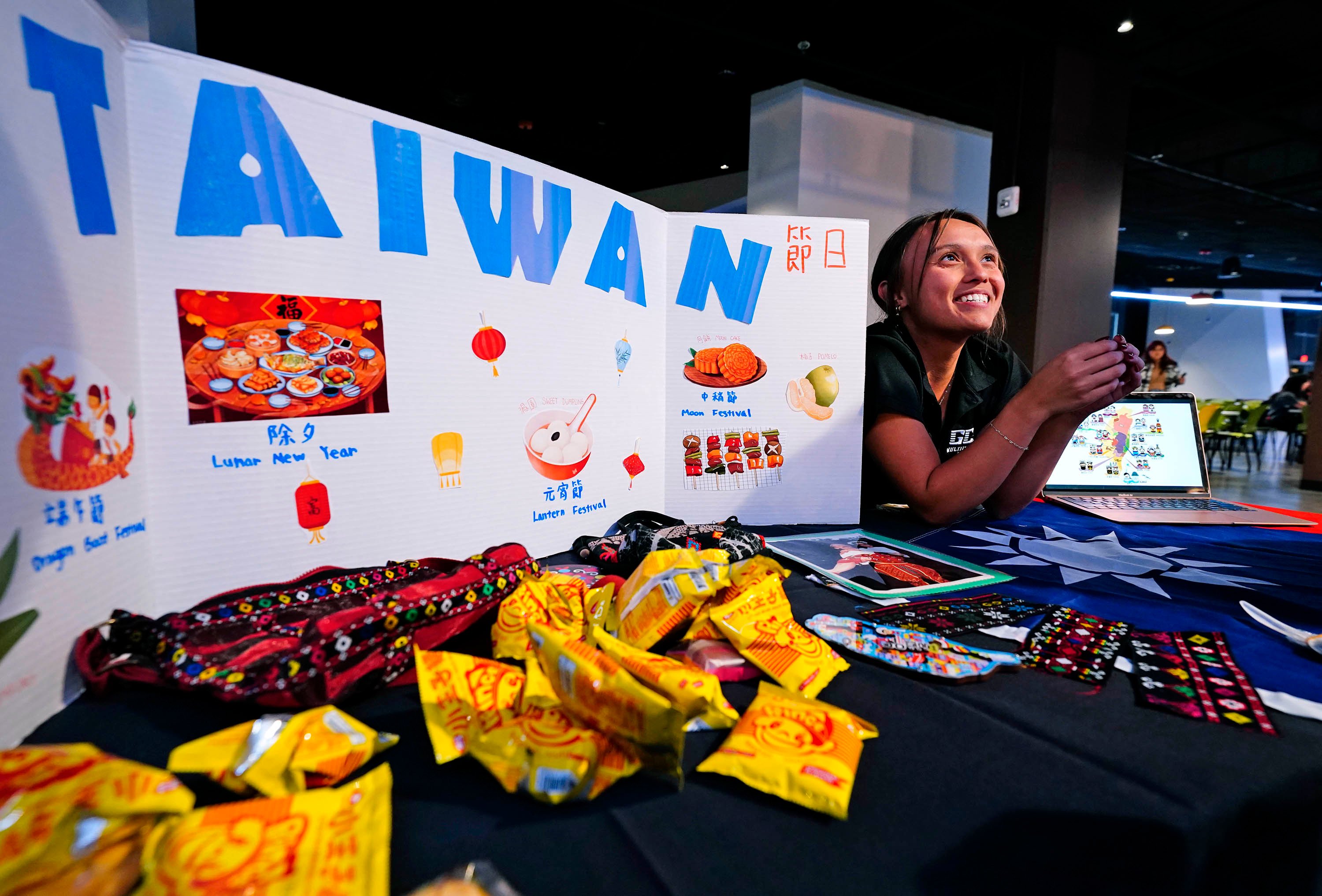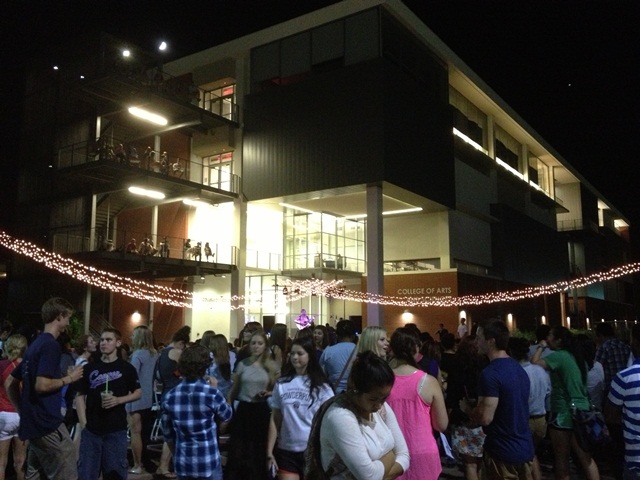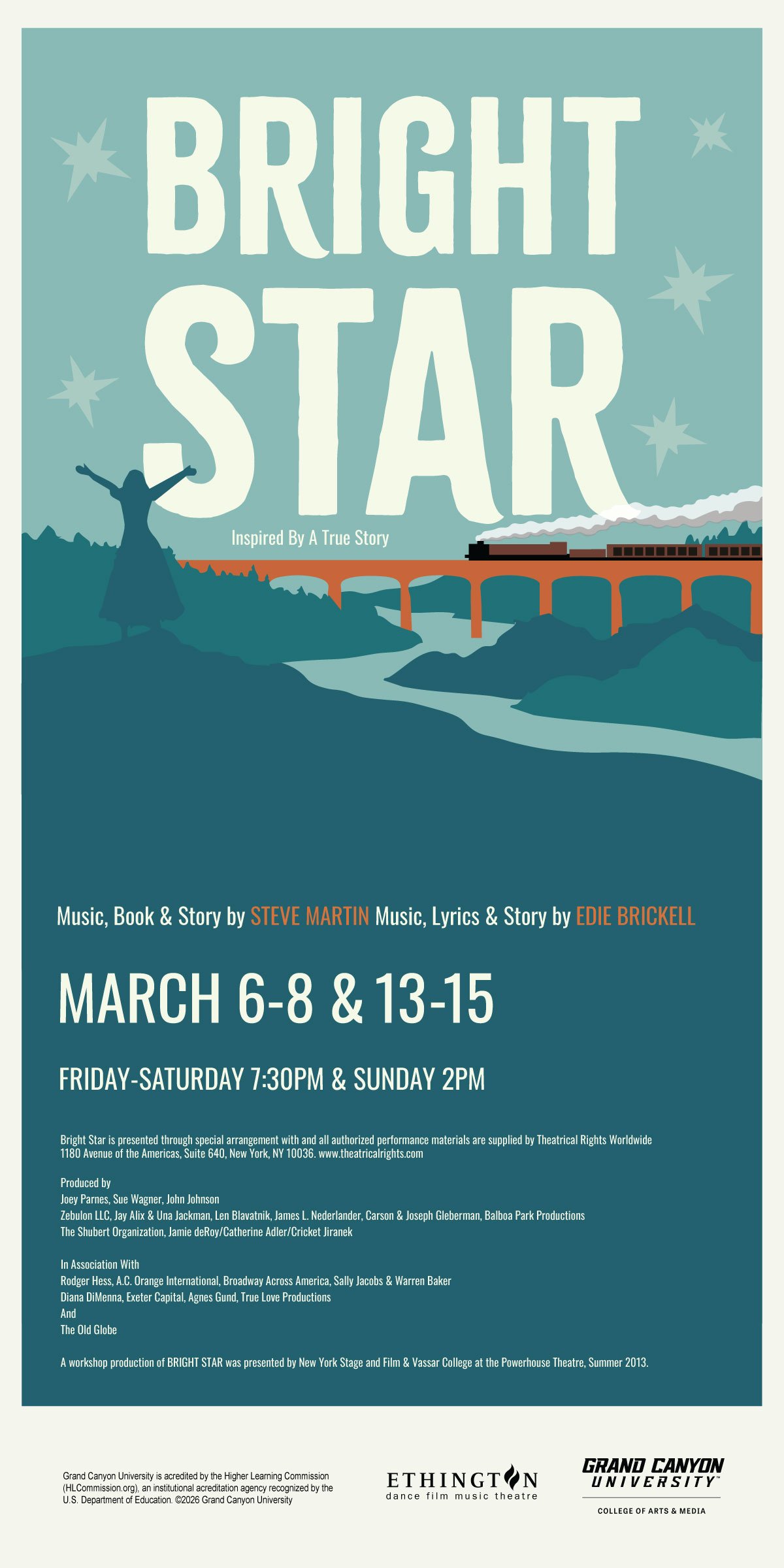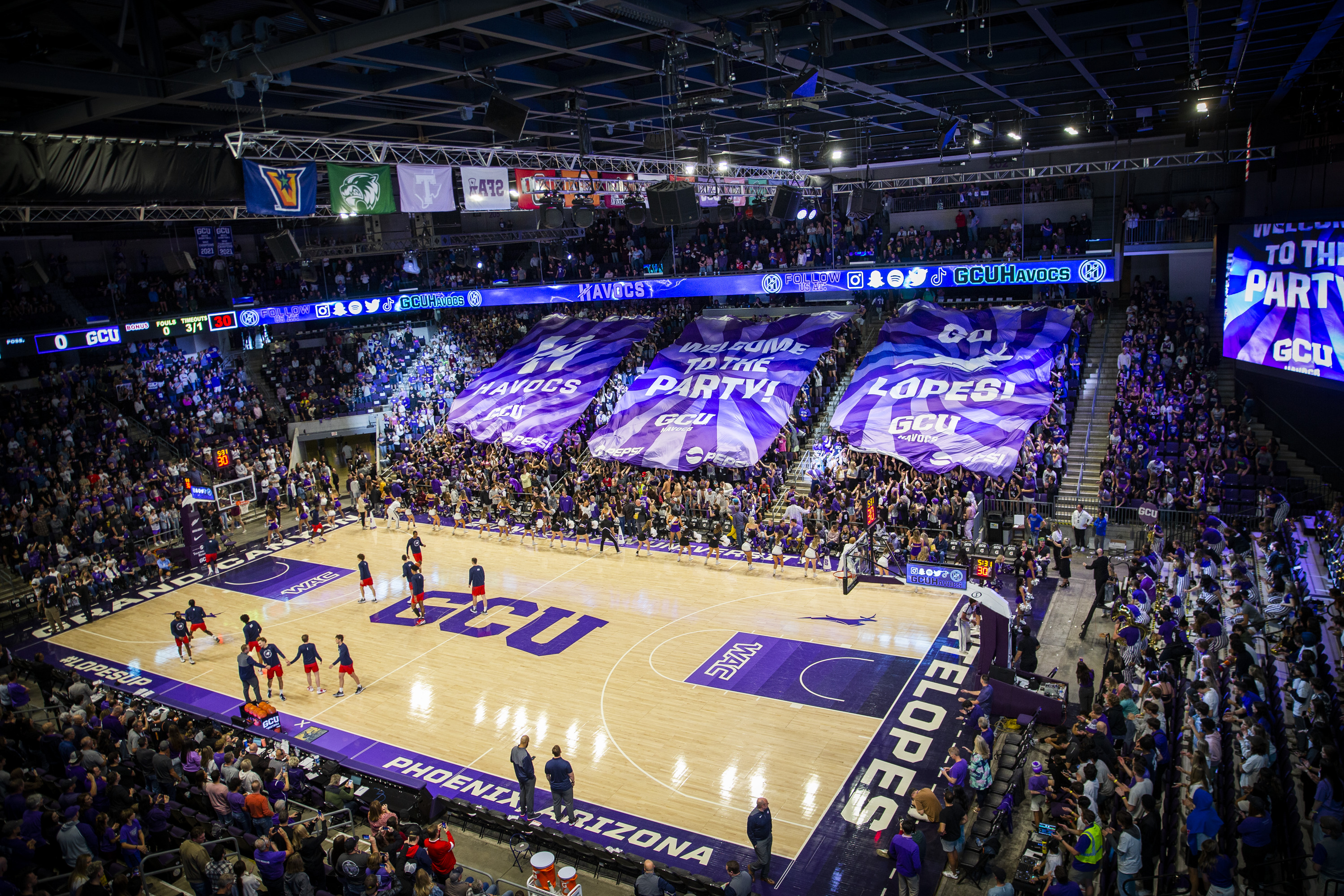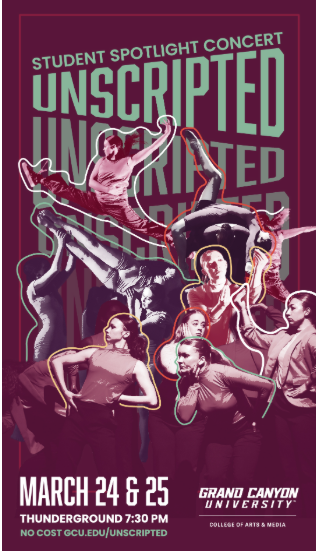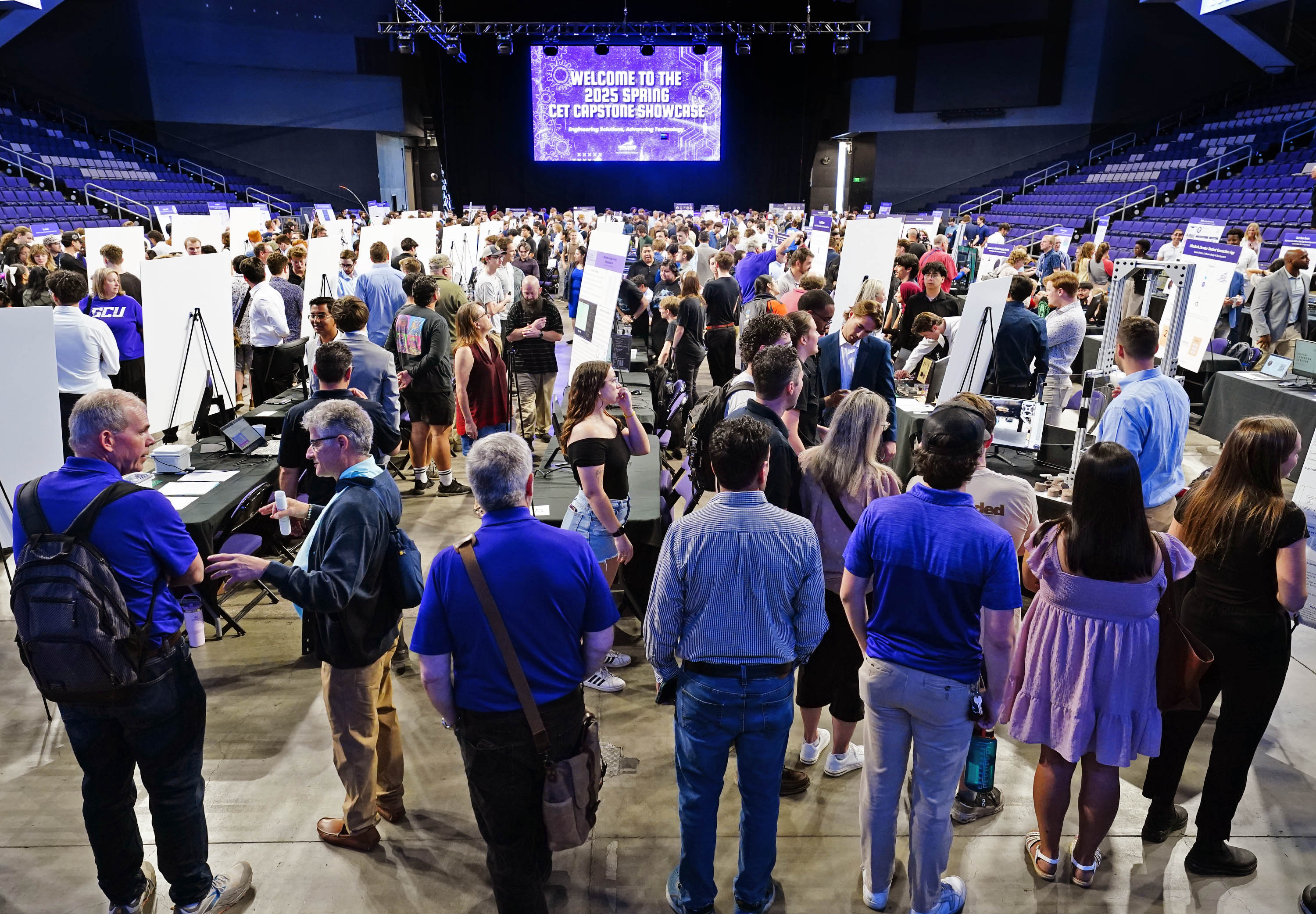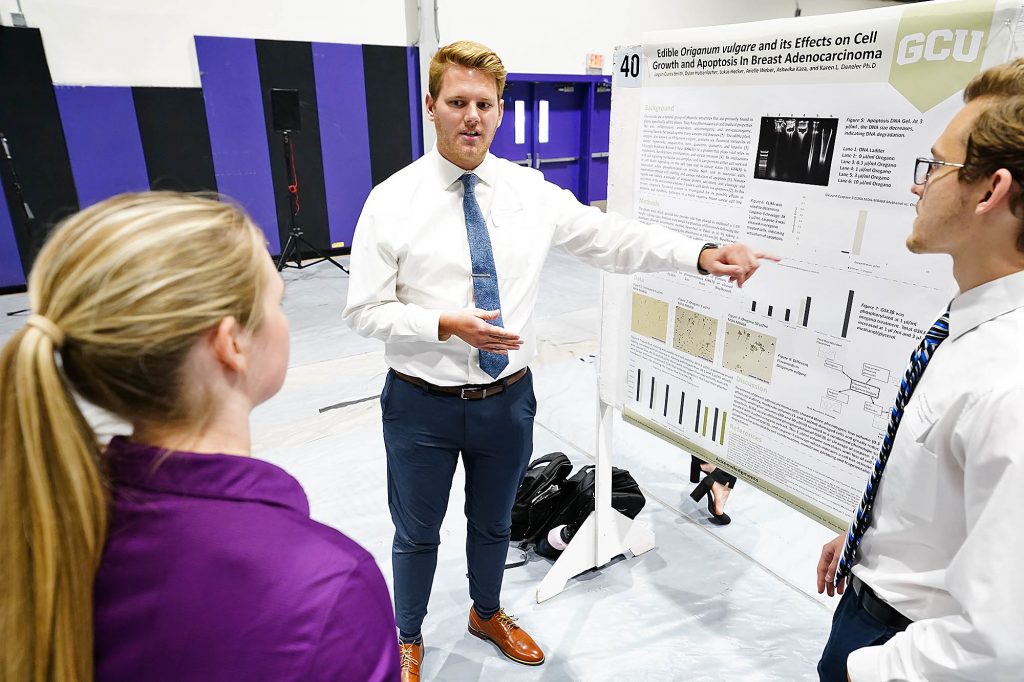
Photos by Ralph Freso / Slideshow
Logan Smith’s advice? Eat more oregano.
The Grand Canyon University biology/psychology/nutrition student has good reason to think so.
He was part of a team of students who researched plants that might be beneficial in fighting cancer and presented their findings at Monday’s College of Science, Engineering and Technology Research Symposium & Honors College Showcase.
Smith’s team focused on plants that produce flavonoids, which are products known to have anti-inflammatory and anticarcinogenic properties and are high in antioxidant agents, which protect your body from everyday toxins and stressors.
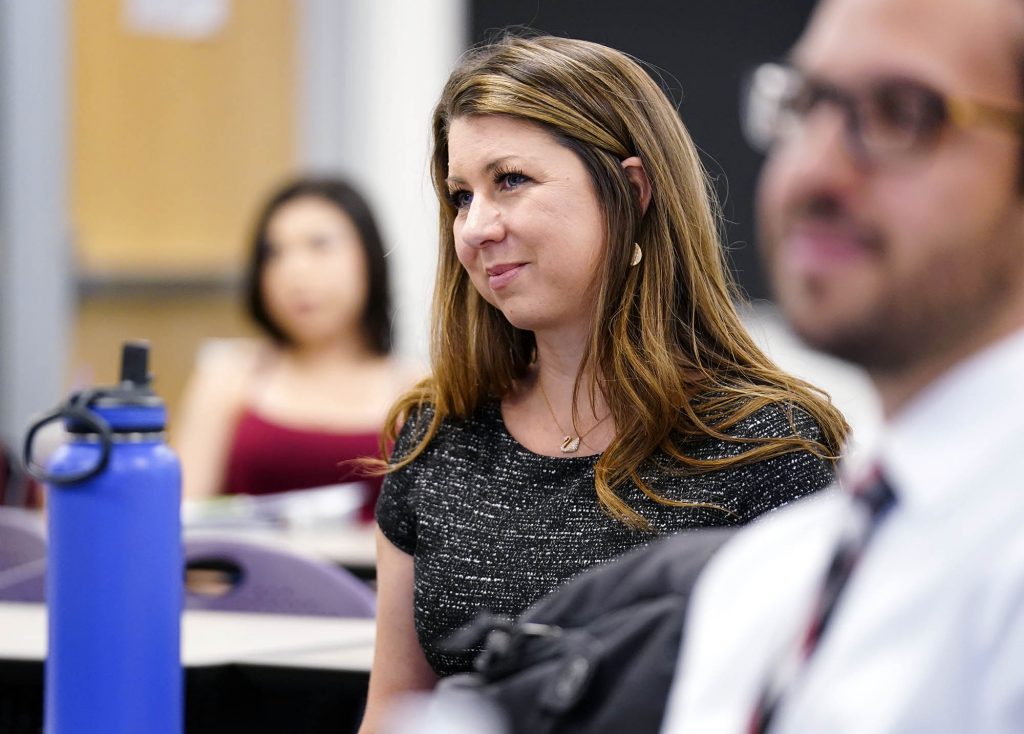
One of the plants among the dozen or so they tested with the highest concentration of flavonoids was origanum vulgare, more commonly known as edible oregano.
The students, under the mentorship of Associate Professor of Biology Dr. Karen Denzler, then tested the oregano to see what its effects might be on cancer cells.
What the group saw was a decrease in cell viability in the breast adenocarcinoma cells it tested. When adding just a little oregano extract (.3 microliters per liter), the student researchers saw a 49% decrease in cell viability. Bumping up that concentration to three times as much greatly reduced viable cell numbers.
“Our conclusion from this experiment is that the edible oregano does induce apoptosis (programmed cell death) in cancer cells,” said Smith.
Bam.
Smith’s team was among more than 60 teams and individual students who presented research posters, along with more than 40 teams' oral presentations at Antelope Gymnasium and the Engineering Building.
More than 200 students from a span of disciplines spoke about the projects they have worked on over the academic year, ranging from paraffin wax additives in hybrid rocketry, to youth’s relationship with reading, to supporting first-generation students, to the inhibition of plant growth in saline conditions.
“My favorite piece is it really articulates and displays the collaboration that takes place between faculty, college administration and our students of all different degree levels,” said Honors College Dean Dr. Breanna Naegeli, who gave the opening remarks along with CSET Associate Dean of Science Dr. Jon Valla.
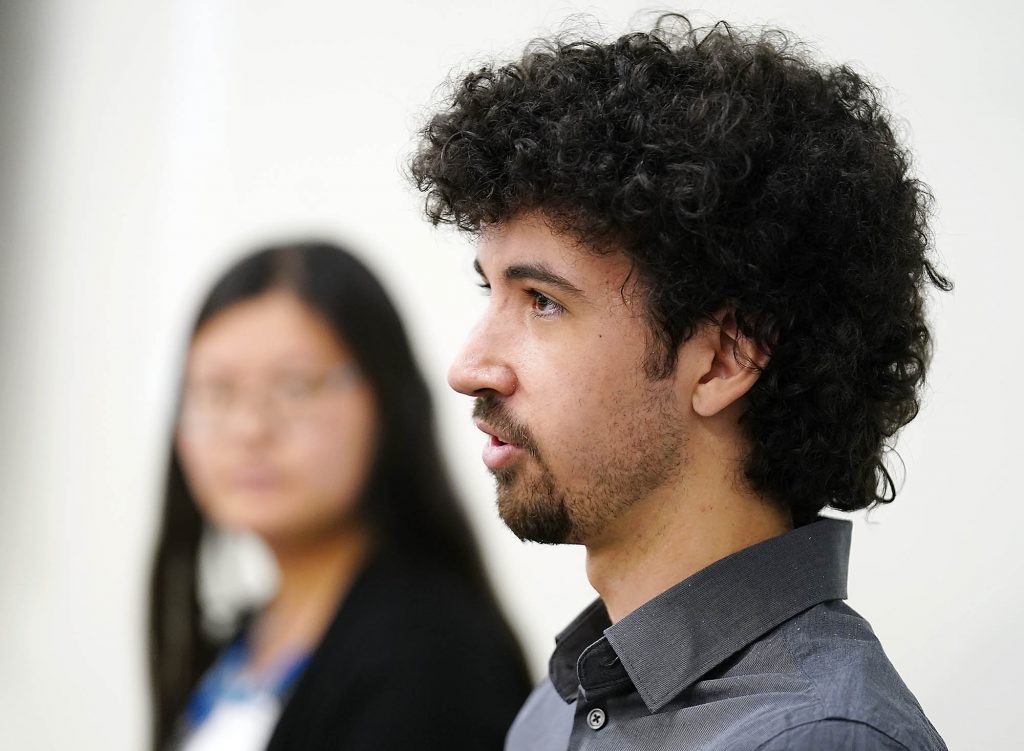
Naegeli emphasized that the event isn’t a senior capstone. Freshmen through seniors collaborate with faculty on these projects, and many of them are seeking to publish their work.
Students who presented their work in the Honors Showcase portion of the event competed in front of judges who looked at not just content but the caliber of their presentation style. Those who place first in their categories will receive scholarships in the Honors College for the next academic year.
One of the Honors Showcase teams detailing their project to the judges in the business/entrepreneurship category was the Crimlog duo of software development majors Melanie Spence and Elijah Olmos.
They created software using web-based blockchain technologies that tracks attendance, such as class attendance or attendance at events.
When users tap a card, such as a student ID card, against a reader, the name of the person who checked in is automatically added to a website and placed in a queue.
Spence, in the 15-minute presentation, talked about the operational cost of the business and emphasized how Crimlog is open source, so any university could choose to use a free version of it.
“The reason we do this is because we are students. We want to encourage education, and we want to encourage other students,” Spence said.
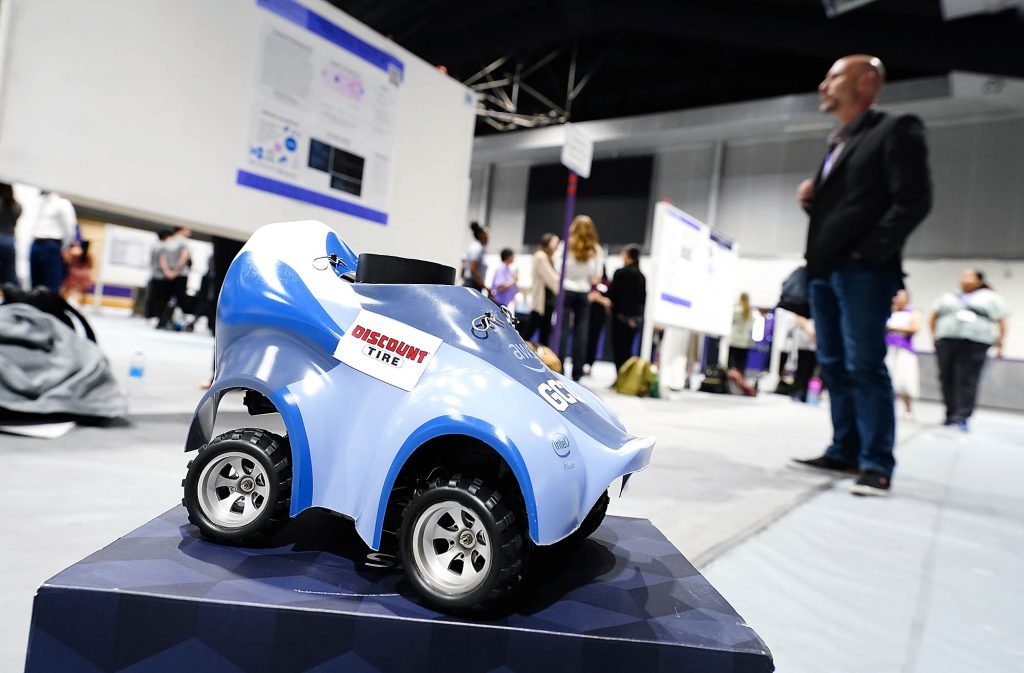
At the CSET Symposium, one of the presenters who was encouraged by the results of her project was IT junior Kaiya Cross. She worked under the mentorship of Jevon Jackson, Lead and Program Chair of the Software Engineering programs.
Cross virtually trained a miniature racecar to race around a track autonomously (so no driver) using a type of machine learning called reinforcement training, the Python language and reward models on a synthetic digital track.
The car’s race times actually slowed down for a time: “You can train it to have bad habits as much as you can train it to have good habits,” she said with a smile.
But eventually she improved her time of 18 seconds around the track to 8.8 seconds.
“It was a lot of fun,” said Cross. “I can’t wait to get it on a real track.”
The next step for her is to upload her model into the car, an Amazon Web Services DeepRacer that the Technology Department purchased with support from Discount Tire.
Cross loves artificial intelligence because it finds patterns that aren’t easy to find.
“It’s going to change the world. It’s bigger than sliced bread,” she said.
Students Gavin Mazza and Peyton Kipper’s project was to look into pharmaceuticals found in our drinking water.
“Some of these pharmaceuticals are quite stubborn,” said Mazza, "and they can actually get past the wastewater treatment process and end up in our drinking water and ground water.”
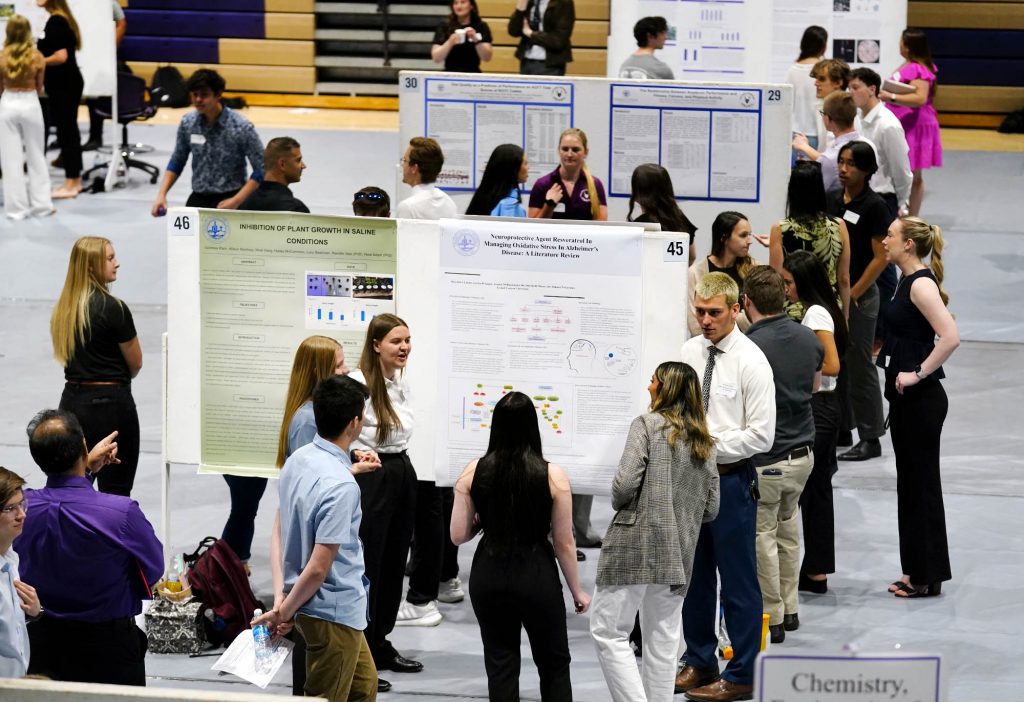
The students, who worked with Assistant Professor of Chemistry and Faculty Chair of Physical Science Dr. Randhir Deo, used values they found in existing research papers and found that caffeine was actually found in the highest concentrations, though caffeine doesn’t have a strong negative effect compared to the pharmaceutical found in drinking water with the highest risk quotient. That would be verapamil, which is used to treat high blood pressure.
Biology/pre-med major Kaitlyn Wabakken worked on a team that wanted to find a way to better measure body fat percentage.
“Currently, the Army has very outdated measurements for determining body fat percentage,” Wabakken said. “They do a measurement comparing your waist circumference to your neck circumference, and that’s not very accurate, especially with people doing weight training or body training.”
So her team instead looked to body adiposity index and body mass index to see which one indicates overall body fat composition the best. The students took measurements on GCU’s Army ROTC cadets using a BOD POD body composition tracking machine, a body mass index (BMI) scale and a body adiposity scale.
They found that BMI is the better predictor of adiposity.
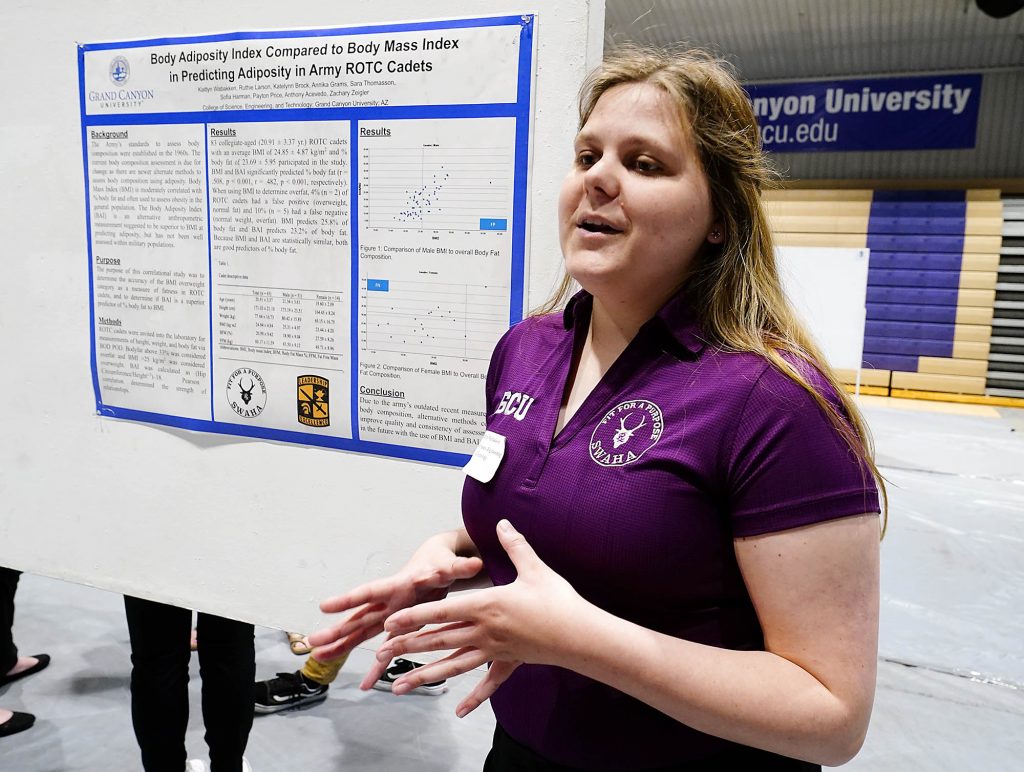
Wabakken wants to work in sports medicine and orthopedic surgery.
Her advice?
Oddly, it has nothing to do with oregano.
“I wanted to get that early research experience, that way, when I go off to medical school, I have a good foundation on how to conduct proper research,” she said – a foundation that will one day help her design new types of surgeries that are less invasive and have a faster recovery rate.
A foundation that will help her get where she wants to go.
Manager of Internal Communications Lana Sweeten-Shults can be reached at [email protected] or at 602-639-7901.
***
Related content:
























